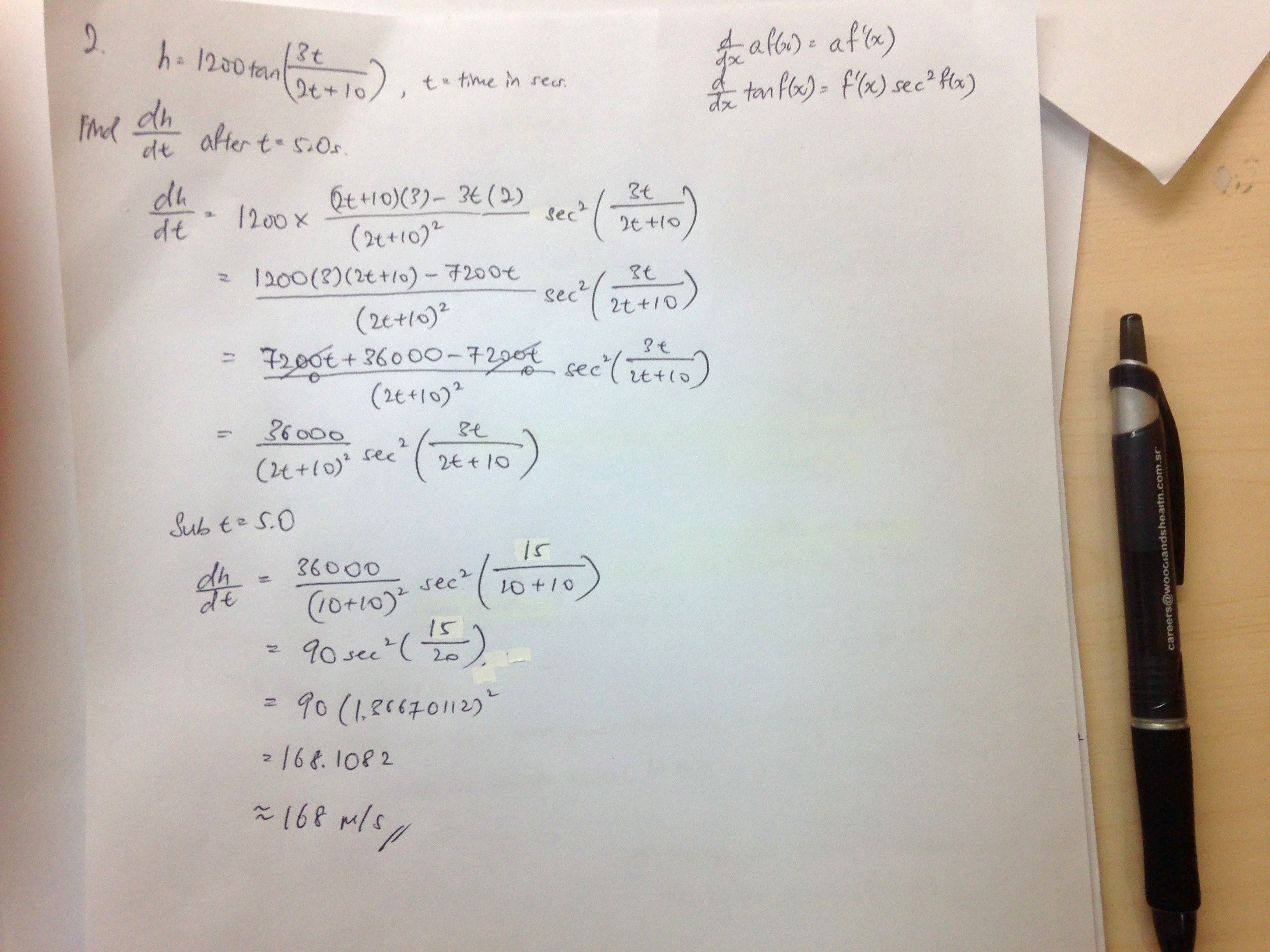Mak, Ivan's answer to Priscilla Neo's Junior College 1 H1 Maths Singapore question.
done
{{ upvoteCount }} Upvotes
clear
{{ downvoteCount * -1 }} Downvotes
Hope this helps! Let me know if there is any part you do not understand.
Date Posted:
6 years ago
May i know how did you derive your answer from sec^2?
Sure, from which part?
Hmm, let me guess, from the second line? Okay, let me see how I can help.
On the right, I have included the constant differentiation formula as well as the tangential differential formula.
Question gives you h=1200tan(3t/(2t+10)). So, what do you have to find? You have to find rate of change, dh/dt after t=5.0s. You can use the tangential differentiation formula. When you differentiate tangent f(x), you get f'(x)sec^2f(x). What does f'(x) mean? It means the differential of f(x) = function of x. In this case, it is f(t) =function of time = 3t/(2t+10), it is actually a quotient of two functions. How do you differentiate this? You can use the Quotient formula. (check formula if unsure). After you have differentiation, you will get a result dh/dt = f'(t)sec^2f(t) as shown.
Okay, what's next? Question asks for the time rate change after 5.0s. Important, you now know the time, t = 5.0s. You also know the differential equation dh/dt = f'(t)sec^2f(t). Simply substitute the time t = 5.0s into the equation. Hence, you will get the result for time rate change at t=5.0s. (Do note the units m/s!)
Let me know if this helps!
On the right, I have included the constant differentiation formula as well as the tangential differential formula.
Question gives you h=1200tan(3t/(2t+10)). So, what do you have to find? You have to find rate of change, dh/dt after t=5.0s. You can use the tangential differentiation formula. When you differentiate tangent f(x), you get f'(x)sec^2f(x). What does f'(x) mean? It means the differential of f(x) = function of x. In this case, it is f(t) =function of time = 3t/(2t+10), it is actually a quotient of two functions. How do you differentiate this? You can use the Quotient formula. (check formula if unsure). After you have differentiation, you will get a result dh/dt = f'(t)sec^2f(t) as shown.
Okay, what's next? Question asks for the time rate change after 5.0s. Important, you now know the time, t = 5.0s. You also know the differential equation dh/dt = f'(t)sec^2f(t). Simply substitute the time t = 5.0s into the equation. Hence, you will get the result for time rate change at t=5.0s. (Do note the units m/s!)
Let me know if this helps!
Key part in the third line of my solutions is the tangential differentiation formula (a must know) and Quotient rule to differentiate f(x) = (3t/(2t+10)). Hope you still remember your quotient rule - covered during your secondary school days (check textbook/online if unsure).



